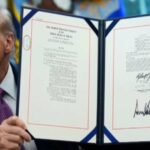Elon Musk recently dropped a lawsuit against OpenAI and its CEO, Sam Altman, alleging that the company had breached a founding promise by prioritizing profits over humanity. Musk withdrew his complaint just before a California judge was scheduled to hear OpenAI’s request for dismissal. The dispute between Musk and OpenAI has been ongoing, with Musk being an early backer of the startup before a falling out occurred.
Musk is now in the process of raising funds for his own AI company, positioning it as an alternative to OpenAI. The lawsuit alleged that OpenAI had become a “de facto subsidiary” of Microsoft Corp., going against its original agreement to be a non-profit organization focused on developing artificial intelligence for the benefit of humanity. OpenAI, on the other hand, argued that Musk’s intentions were to gain access to their proprietary records and technology through the pretrial fact-finding process.
OpenAI also refuted Musk’s claims that there was a founding agreement for the company to breach or that it had promised to make its technology open-source. In 2017, Musk had allegedly supported OpenAI’s plans to transition into a for-profit business and raise substantial funds. Additionally, Musk threatened to ban Apple Inc. devices from his companies if OpenAI’s AI software were to be integrated at the operating system level, citing security concerns.
Representatives for Musk and OpenAI have not responded to requests for comment on the matter. The lawsuit and subsequent withdrawal highlight the complexities and tensions within the AI industry, particularly in relation to the ethical and moral implications of AI development. The dispute between Musk and OpenAI underscores the challenges of balancing profit motives with the potential risks and benefits of advancing artificial intelligence technology for the betterment of society.
Overall, the lawsuit between Elon Musk and OpenAI sheds light on the evolving landscape of AI development and the competing interests at play within the industry. Musk’s decision to withdraw the lawsuit indicates a shift in his approach to addressing concerns about AI development and regulation. The outcome of this legal battle may have broader implications for how AI companies operate and prioritize their goals in the future, as well as how they navigate the ethical considerations surrounding the use of artificial intelligence technology.









